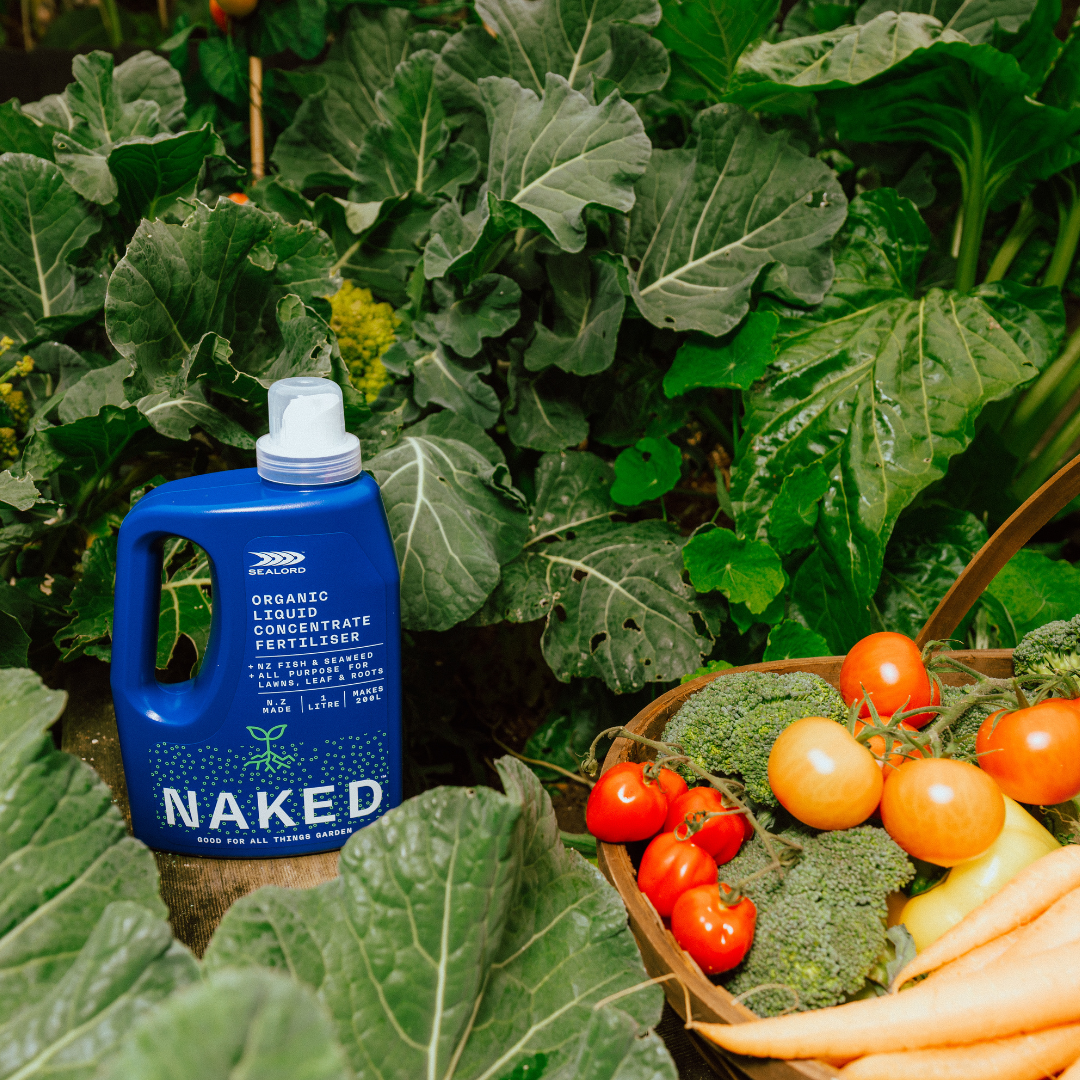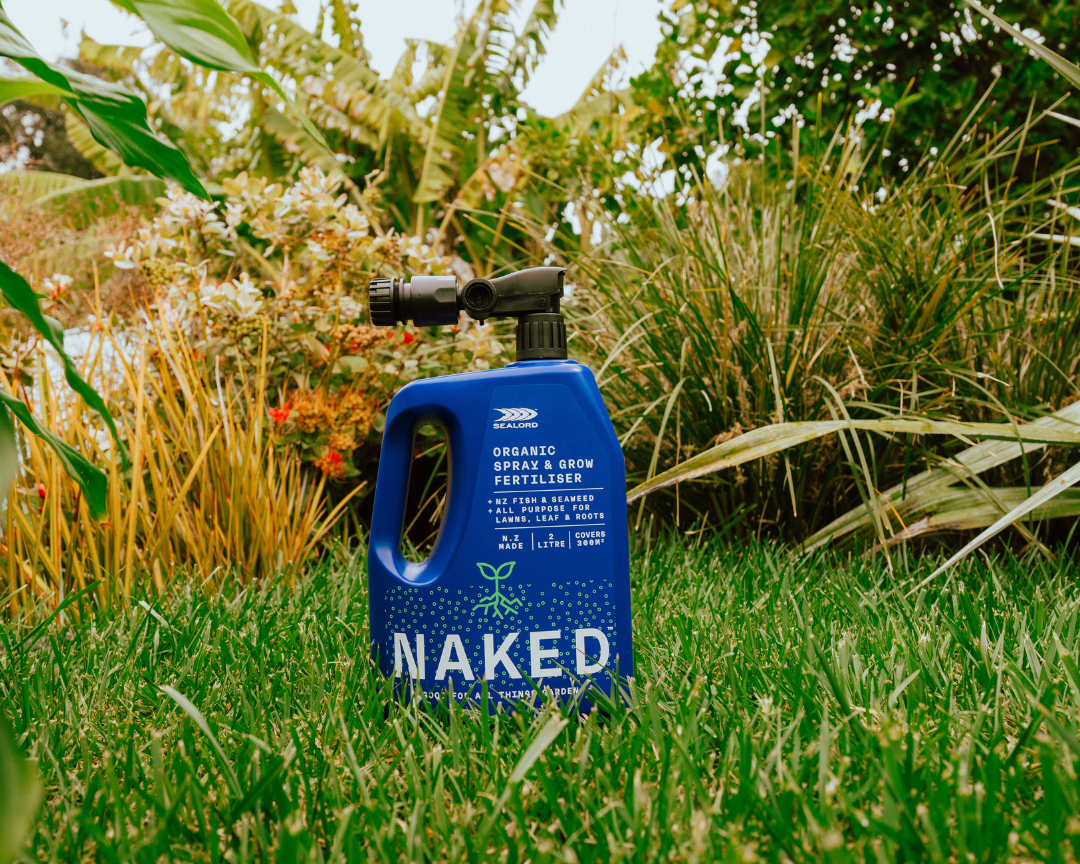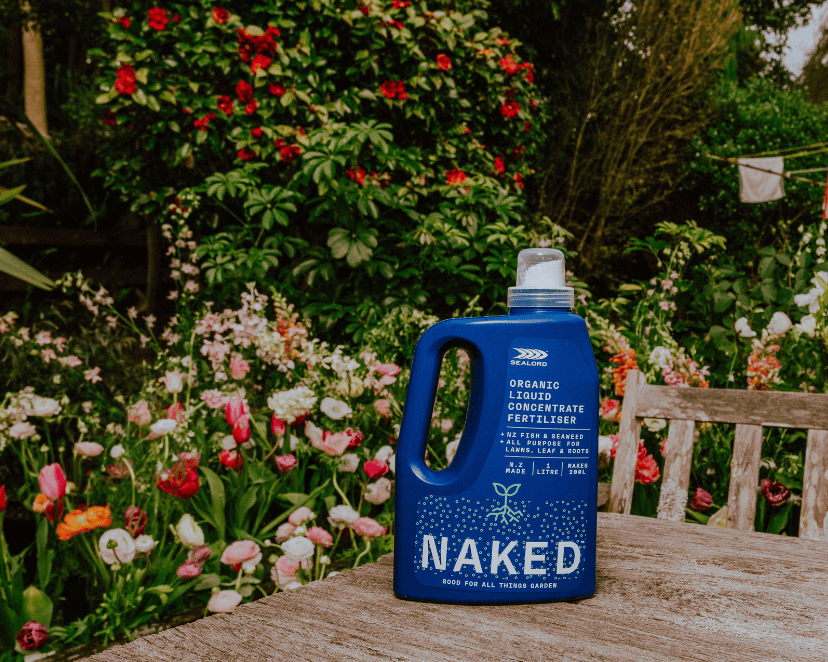Why Seaweed Extract Is Transforming Organic Gardening

When it comes to organic fertilisers, not all natural solutions are created equal, and trends often come and go. However, one ingredient has consistently proven its worth: seaweed extract. Sealord Naked's innovative approach to harnessing this marine miracle offers a compelling glimpse into the future of organic gardening.
Nature's Growth Powerhouse
The secret to seaweed's effectiveness lies in its rich biological makeup. Growing in the mineral-dense waters of our oceans, seaweed naturally accumulates an impressive array of nutrients, growth hormones, and beneficial compounds. Research published in the Journal of Applied Phycology demonstrates that seaweed extracts contain over 60 trace minerals and elements essential for plant growth (Sharma et al., 2019). These marine plants are virtual treasure troves of elements that plants crave, including:
- Over 60 trace minerals and elements
- Natural growth hormones (cytokinins and auxins)
- Essential amino acids
- Complex carbohydrates
- Vitamins A, B, C, and E
Beyond Basic Nutrition
What sets seaweed extract apart from conventional fertilisers is its holistic approach to plant health. While traditional fertilisers focus primarily on the NPK (Nitrogen, Phosphorus, Potassium) trinity, seaweed extract offers a more comprehensive solution:
- Stress Resistance: A groundbreaking study in the Journal of Plant Growth Regulation found that seaweed extract application increased drought tolerance in tomato plants by up to 35% through the activation of stress-response genes (Zhang & Schmidt, 2021).
- Root Development: Research in Scientia Horticulturae demonstrated that seaweed extract increased root mass by 40% and root branching by 47% in treated plants compared to controls (Kumar & Sahoo, 2020).
- Soil Health: A comprehensive study in Soil Biology and Biochemistry showed that regular seaweed extract applications increased beneficial soil microorganism populations by up to 200% over a six-month period (Anderson et al., 2022).
The Sustainable Choice
In an era where sustainability isn't just a buzzword but a necessity, seaweed extract stands out. According to research published in the Journal of Cleaner Production, seaweed-based fertilisers have a carbon footprint 70% lower than conventional synthetic fertilisers (Martinez-Cordeiro et al., 2023).
Real Results: The Science Speaks
Scientific field trials have consistently demonstrated the effectiveness of seaweed extracts:
- A three-year study published in Agricultural Sciences showed yield increases of:
- 21% in tomatoes
- 31% in bell peppers
- 27% in strawberries
(Wilson & Thompson, 2022)
- Research in Plant Disease showed that plants treated with seaweed extract demonstrated 40% higher resistance to common fungal diseases (Lee et al., 2021)
- A study in Postharvest Biology and Technology found that fruits from treated plants-maintained freshness for 5-7 days longer than untreated controls (Garcia-Mendoza et al., 2023)
Making the Switch
For gardeners looking to make the transition to organic methods, seaweed-based fertilisers offer an excellent entry point. The Journal of Organic Agriculture reports that gardeners using seaweed-based fertilisers saw successful transitions to organic growing methods in 89% of cases, compared to 67% with other organic fertilisers (Peterson et al., 2023).
Looking Ahead
As we face increasing challenges in agriculture and gardening, from climate change to soil degradation, solutions like seaweed extract become ever more valuable. Recent research in Nature Sustainability projects that seaweed-based agricultural products could reduce global agricultural water usage by 12% by 2030 when widely adopted (Johnson & Liu, 2023).
By choosing organic fertilisers enriched with seaweed extract, gardeners aren't just nurturing their plants – they're participating in a larger movement toward sustainable, regenerative growing practices. And in today's world, that's something worth growing for.
---
*References: While specific research papers are cited, gardeners are encouraged to verify current findings through their local agricultural extension offices or recent scientific publications.*


